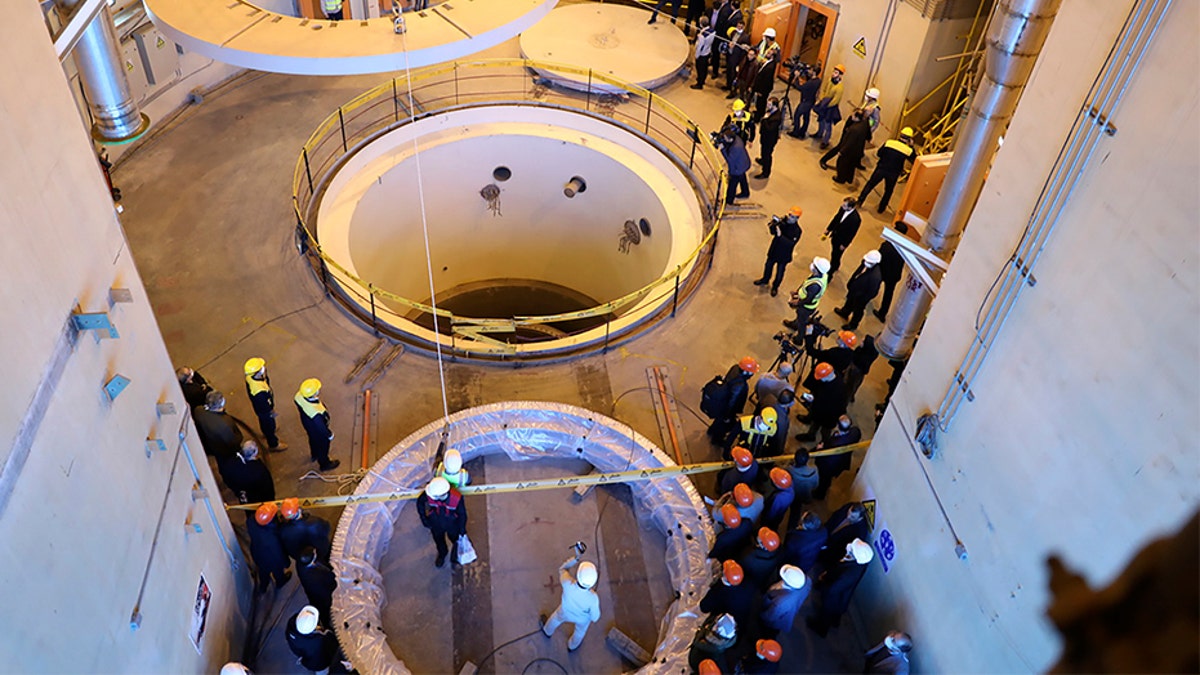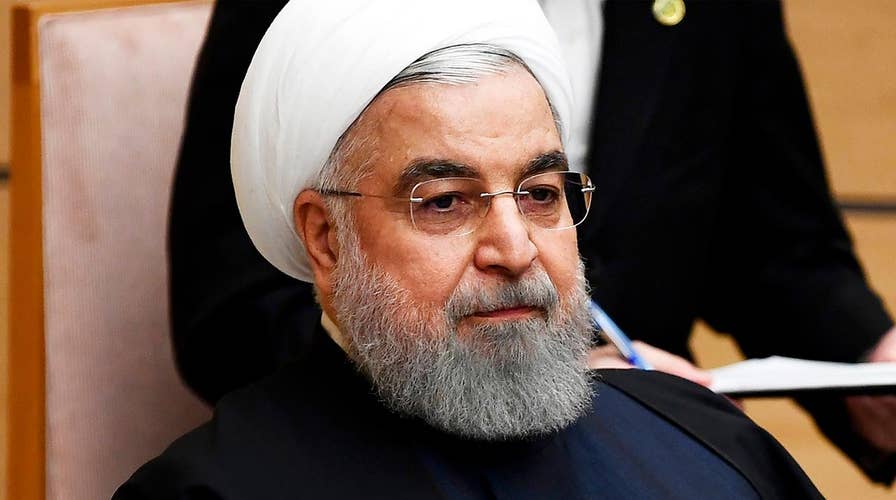EU powers launch action under nuclear deal as Iran announces arrests in downing of Ukraine plane
Trey Yingst reports from Jerusalem with the latest.
A trio of western powers is paving the way Tuesday for possible sanctions to be re-imposed on economically-strained Iran if the Islamic Republic continues to back away from its international nuclear deal.
Britain, France, and Germany, which signed the agreement in 2015, informed the European Union’s foreign policy chief that they are triggering its “dispute mechanism” – which begins a process that could result in the U.N. restoring sanctions it previously lifted under the deal. Iran has gradually been rolling back its commitment after President Trump pulled the U.S. out of the deal in 2018 – and recently announced that it would no longer respect limits set on how many centrifuges it can use to enrich uranium.
“We have therefore been left with no choice, given Iran’s actions, but to register today our concerns that Iran is not meeting its commitments,” the foreign ministers of the three countries wrote in a letter.
The ministers added they are referring “this matter to the Joint Commission under the Dispute Resolution Mechanism, as set out" in the nuclear deal, and that they “share fundamental common security interests, along with our European partners."

The head of Iran's nuclear agency says his country has begun new operations at a heavy water nuclear reactor in Arak. (Atomic Energy Organization of Iran)
BORIS JOHNSON WELCOMES REPLACING OBAMA-ERA IRAN NUCLEAR AGREEMENT WITH A 'TRUMP DEAL'
“One of them is upholding the nuclear non-proliferation regime, and ensuring that Iran never develops a nuclear weapon,” the letter said.
German Foreign Minister Heiko Maas said the three European countries "could no longer leave the growing Iranian violations of the nuclear agreement unanswered."
"Our goal is clear: we want to preserve the accord and come to a diplomatic solution within the agreement," he added.
EU foreign policy chief Josep Borrell insists though that the move does not mean that sanctions will automatically be re-imposed.
The mechanism allows two weeks for ministers to resolve any problems, although that period can be extended if all sides agree, according to the Associated Press. If needed, an advisory board would have an extra 20 days to adjudicate.
CLICK HERE TO GET THE FOX NEWS APP
The nuclear agreement is aimed at convincing Iran to stop developing atomic weapons in exchange for economic incentives.
Tehran said its recent move on uranium enrichment was a “remedial step” in line with the deal and that it could be reversed.
Fox News’ Rich Edson and the Associated Press contributed to this report.









































